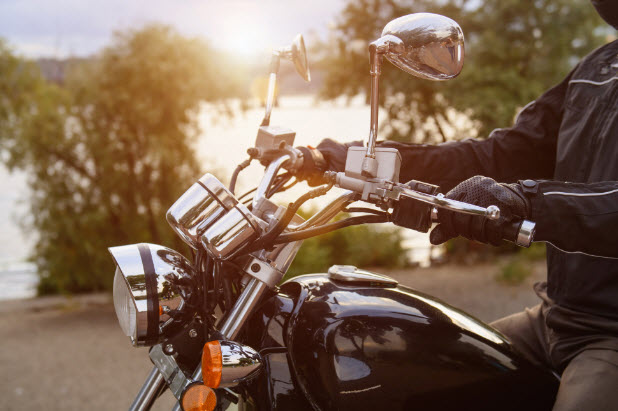No driver wants to have a wreck. For motorcycle riders, this is just as big of a concern, and an even greater risk. Bikers have a lot to lose when wrecks occur, perhaps even more so than regular drivers. As a result, it is imperative that they have motorcycle insurance to back them up in case accidents occur. However, how you react in the immediate aftermath of a wreck might affect the eventual settlement you might receive from the insurer. That’s why you need to react as appropriately as possible under the circumstances.
up in case accidents occur. However, how you react in the immediate aftermath of a wreck might affect the eventual settlement you might receive from the insurer. That’s why you need to react as appropriately as possible under the circumstances.
Driving Risks of Being a Motorcyclist
Motorcyclists face significant driving risks, that are both higher and different from those faced by standard drivers. The risks arise from the fact that motorcycles are not cars, though they travel on the same roadways. At the same time, bikes are two-wheeled and they do not enclose riders in the same way that cars do.
Bikes therefore take skill to operate that a standard driver might not possess. Furthermore, should an accident occur, then the driver might face a significant risk of injuries, even if they are wearing all the appropriate safety gear.
That’s why it’s important that you have motorcycle insurance in case accidents occur. The policy can help you pay for some or all of the costs of your recovery and the bike’s repairs. However, you need to be able to get to that position following a wreck itself.
Getting Assistance After a Wreck
It doesn't matter if a wreck is small, or large. The most important thing is that you are okay following the wreck. If you are injured, even if you think it’s minor, then immediately seek medical care. You never know, just because you cannot see an injury doesn’t mean it is not there. You might have sustained a concussion, or internal injuries, all of which might be serious. Only afterwards should you handle things with your insurer.
Make sure you call the police and an ambulance to come to the scene of the accident, and do not leave the scene. Leaving the scene might result in charges of hit-and-run, and also make it harder for insurers to follow the appropriate claims process. While at the scene, give the police your version of what you think might have happened. If the accident involved another driver, you should not admit guilt or innocence in the matter. The police and the insurance companies will help you determine fault.
Only after you have received assistance at the scene should you call your insurance company. Your motorcycle insurer can help you determine what your next steps might be.
The Assistance of Your Motorcycle Insurance Company
You should call your motorcycle insurer before you take the bike home. In many cases, they will want to see the bike and its damage at the scene. They might even send a claims adjuster to the site of the wreck. At minimum, they might ask you to describe or take pictures of the damage to the bike. This will help them later on in the claims process.
Depending on the structure of your bike’s insurance policy, your coverage may or may not pay for all of your damage costs. Your policy will almost certainly include liability coverage, which pays for damage you do to others if the wreck is your fault. Additionally, if you have bought collision insurance, the policy can help you pay for repairs to your own bike.
Your insurance company will be there to help you every step of the way. They can help you determine where your policy limits will and won’t be able to help you out. You can work one-on-one with your agent and claims adjuster until you eventually reach a settlement for the damage costs.
Also Read: How to Avoid a Parking Lot Accident